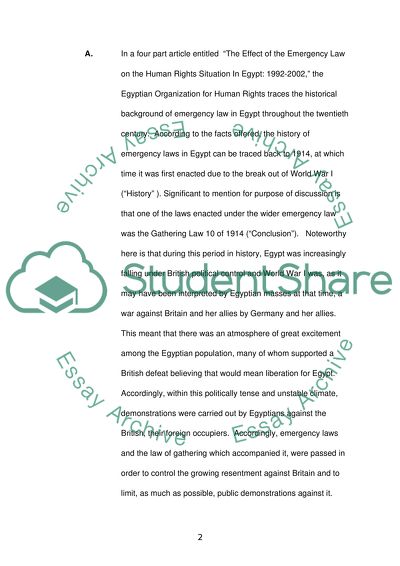Cite this document
(“Egyptian human rights organizations Essay Example | Topics and Well Written Essays - 2250 words”, n.d.)
Egyptian human rights organizations Essay Example | Topics and Well Written Essays - 2250 words. Retrieved from https://studentshare.org/miscellaneous/1504378-egyptian-human-rights-organizations
Egyptian human rights organizations Essay Example | Topics and Well Written Essays - 2250 words. Retrieved from https://studentshare.org/miscellaneous/1504378-egyptian-human-rights-organizations
(Egyptian Human Rights Organizations Essay Example | Topics and Well Written Essays - 2250 Words)
Egyptian Human Rights Organizations Essay Example | Topics and Well Written Essays - 2250 Words. https://studentshare.org/miscellaneous/1504378-egyptian-human-rights-organizations.
Egyptian Human Rights Organizations Essay Example | Topics and Well Written Essays - 2250 Words. https://studentshare.org/miscellaneous/1504378-egyptian-human-rights-organizations.
“Egyptian Human Rights Organizations Essay Example | Topics and Well Written Essays - 2250 Words”, n.d. https://studentshare.org/miscellaneous/1504378-egyptian-human-rights-organizations.


